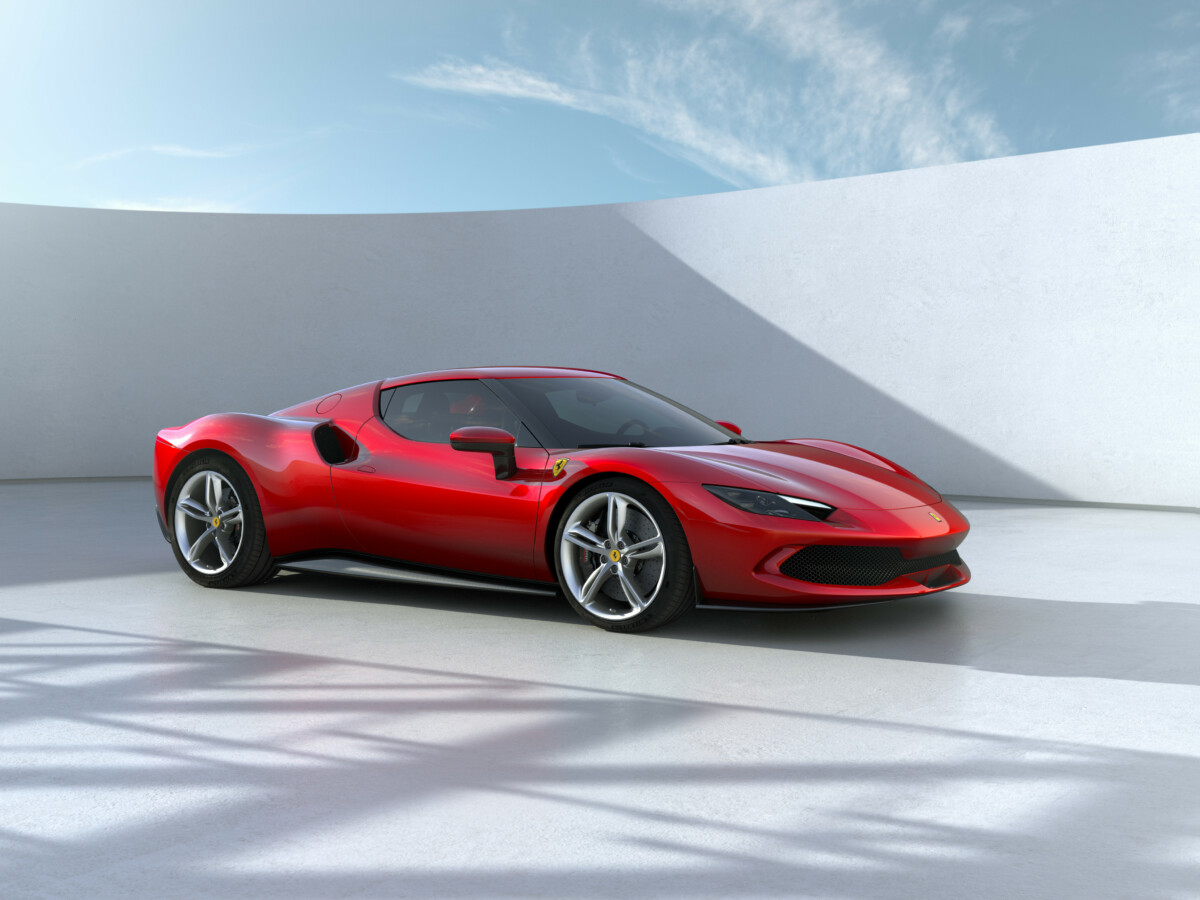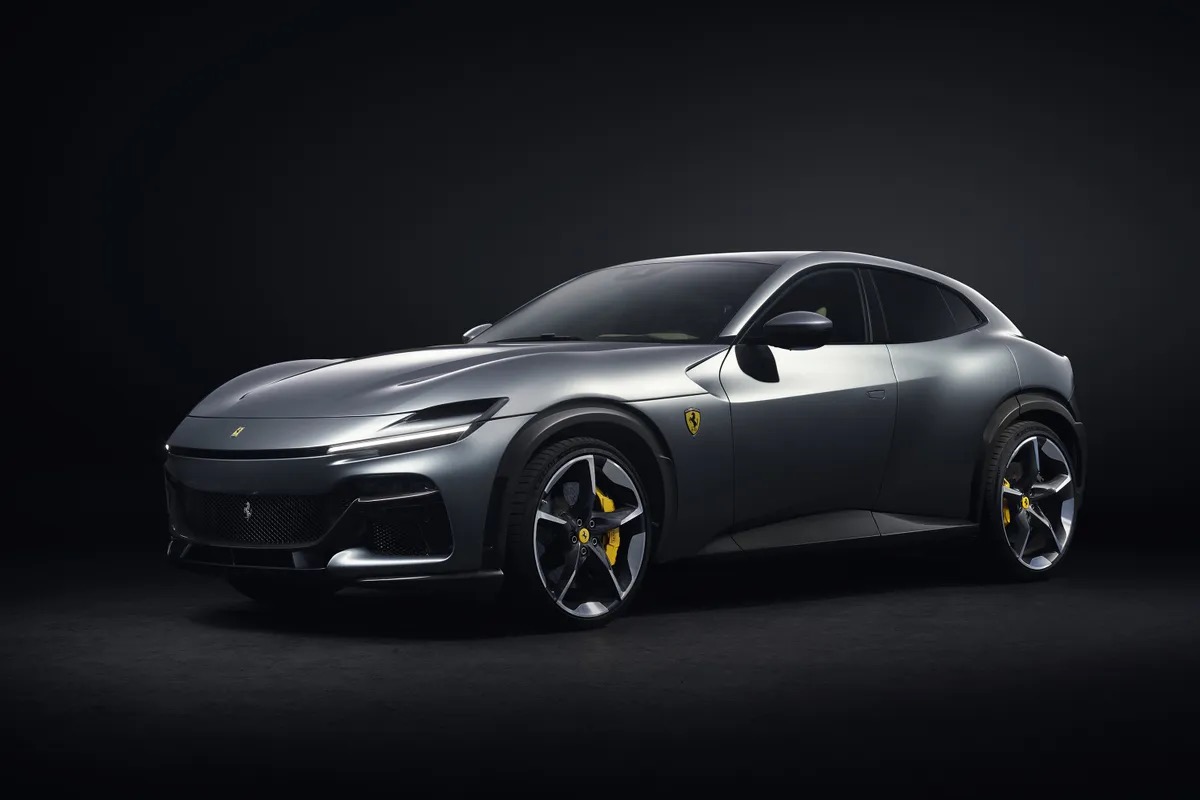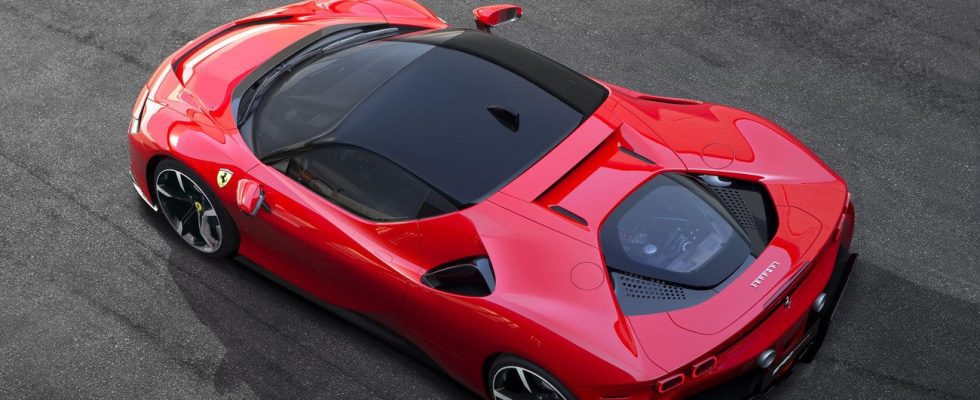Ferrari will continue to offer thermal cars after 2035 in Europe, with the complicity of the European Union. The latter will indeed authorize manufacturers to sell internal combustion vehicles, but on one condition. This will not prevent the Italian brand from working on its electric models.
After several months of debate, it is now official, thermal cars will indeed be banned in Europe in 2035. From this date, manufacturers will no longer have the right to sell new models equipped with an internal combustion engine. But that’s not why electric vehicles will be the only ones available in dealerships.
A boon for Ferrari
Indeed, if the European Union has approved the ban on thermal cars, it has also undertaken to authorize synthetic fuels, at the insistence of Germany, supported behind the scenes by Porsche. If the country had threatened, like eight others, not to vote in favor of this measure, it finally won its case and therefore lined up behind the European Commission.
This exemption is therefore a godsend for many builders, who will be able to continue to develop and market thermal vehicles after the 2035 deadline. This is the case of Porsche, which has been working on the subject for a long time, but not only. Because another luxury brand is also taking a close interest in this alternative fuel.

This is Ferrari, which is also developing this technology a little more discreetly. The announcement of the European Union is therefore a real boon for the manufacturer, as explained by its CEO Benedetto Vigna to the British agency Reuters. He asserts that ” the good news for us as a company (…) is that in addition to electric cars, we will also be able to continue with our internal combustion engines“.
The Maranello-based firm does not want to put all its eggs in one basket and wants to multiply the alternatives. This is how it also already offers rechargeable hybrid models such as the SF90 Stradale and other 296 GTBs.
Several options
For the boss of the builder, it is important to propose several alternativeswhile he explains that “ we don’t want to tell customers which car to use. We want to provide them three types of propulsion – hybrid, electric and thermal – and they will choose“. Synthetic fuel is therefore the only way to continue to offer thermal engines after 2035.
Indeed, if there will indeed be an exemption from the obligation to switch to all-electric for manufacturers present in Europe, this will only concern those selling less than 10,000 vehicles per year. This is not the case with Ferrari, which sold more than 13,200 cars last year.

However, the Italian firm also plans to launch several 100% electric models, while the first should see the light of day in 2025. By 2030, zero-emission exhaust and hybrid models should represent 80% of the range. , against 20% for purely thermal cars. But that does not mean that future Ferraris will be clean.
Because synthetic fuels, like electric cars, are not without flaws. In addition to a very high price at the pump, this alternative does not prevent the discharge of polluting gases and requires a lot of energy to be manufactured on a large scale.
Want to join a community of enthusiasts? Our Discord welcomes you, it’s a place of mutual aid and passion around tech.
